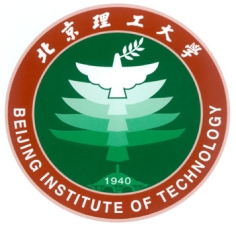 bat365正版官方网站“博约学术论坛”系列报告
bat365正版官方网站“博约学术论坛”系列报告
第392期
题目:用于片上光通信的二维材料混和集成光子器件研究 |
报告人:王怡 博士后(香港中文大学) 时 间:2023年6月5日(星期一)19:00 地 点:腾讯会议,会议号:120 938 373 |
摘要: 二维材料与光子集成电路的混合集成为集成光子学开辟了一条新途径,因为它们可以提供超出常见无源光子平台的附加功能。例如,光探测、电光调制、增强非线性效应等功能都可以通过集成不同种类的二维材料来实现。首先,我们提出了一种用于将石墨烯与连续体中的束缚态光子集成电路结合的混合集成平台。该集成方案适用于任何二维材料和任何介电基底,制作工艺对二维材料质量影响可忽略不计且具有高制造容差。作为对该概念的验证,我们将不同的二维材料集成到氮化硅和铌酸锂基底上。实现了高性能的热光滤波器和光开关、波导集成石墨烯光电探测器和波导集成电光强度调制器。然后,我们研究了十族过渡金属二硫化物在近红外高速光电子学的应用,在实验上实现了基于宽带和高速二硒化铂的空间光光电探测器和集成了具有低暗电流的二硒化铂、二硒化钯的高速光电探测器以及GHz工作带宽的二硒化铂电光调制器。此外,我们还开发一种具有低损耗的深亚波长等离子体狭缝波导模式转换器,该模式转换器同样具有不同衬底的通用性及高制作容差,可广泛应用于传感以及超紧凑光学系统的开发。 |
简历: 王怡现为香港中文大学电子工程系博士后研究员(2021.01-至今)。2014年本科毕业于电子科技大学,获得学士学位。2020年在香港中文大学电子工程系曾汉奇教授的指导下取得工学博士学位。 王怡博士的研究方向主要集中在用于红外光通信的片上集成高速光电子器件(如光电探测器和电光调制器等)的二维材料混合集成平台的研究。在国际重要学术期刊己发表论文二十余篇,其中以第一作者(或共同一作)发表 5 篇论文,包括物理学领域核心期刊 Applied Physics Letter (APL) 2篇,其中一篇获得编辑精选,光子学领域权威期刊 ACS Photonics 1篇,Advanced Optical Materials 1篇,IEEE Journal of Lightwave Technology 1篇; 在 CLEO、IPC、OECC、ECIO等国际知名光学会议上报告8次。研究成果获得国内外同行的关注和认可,并获邀在2022年度亚洲通信和光子学会 (ACP)上作邀请报告,获2022年度 Rising Stars Women in Engineering。 |
联系方式:6120210244@bit.edu.cn 邀请人: 陶立 网 址:http:/ 承办单位:物理学院、先进光电量子结构设计与测量教育部重点实验室 |
*Title: Hybrid Integration of Two-dimensional Materials for Photonic Devices |
*Reporter: Wang Yi Postdoc(The Chinese University of Hong Kong) *Time: *Place: *Contact Person: |
*Abstract: Hybrid integration of two-dimensional (2D) materials with photonic integrated circuits have attracted widespread interest in recent years, and can offer supplementary functionalities which may not otherwise be available in passive planar lightwave platforms. Photodetection, optical modulation and enhanced nonlinear optical effects are some of the addition functionalities that can be introduced using different 2D materials. In this presentation, first, a hybrid integration platform for integrating graphene with bound states in the continuum (BICs) photonic integrated circuits is proposed. It avoids the possible shortcomings of the sharp corners of conventional waveguide-ridge which may perturb the 2D lattice and reduce the electrical mobility of the 2D materials, while typically providing a larger optical field overlap with the 2D material than is possible by placing the 2D material on top of a conventional waveguide cladding. Besides, this integration scheme can be generically applied to any single-crystal dielectric substrates, while ensuring strong light–matter interactions and high fabrication yields. We describe some examples of hybrid photonic devices demonstrated by the hybrid integration of graphene on lithium niobate, including thermo-optic switches and filters, ultrafast photodetectors with 40-GHz detection frequency bandwidth, and electro-optic modulators with several GHz modulation bandwidth. Next, we describe results using this approach for hybrid integration of phototodetectors and optical modulators using the semiconducting phases of group-10 transition metal dichalcogenide (TMD) materials, which unlike graphene, have lower darkcurrent and less shot for mid-infrared photodetectors. Finally, a low loss mode converter of dielectric waveguide mode to deep subwavelength plasmonic slot mode is proposed which potentially can be applied for sensing and ultra-compact optoelectronic devices. |
*Profile: Yi Wang is a Postdoctoral research Fellow in Electronic Engineering department at the Chinese University of Hong Kong (CUHK) (2021.01-now). She graduated with a B.Sc. degree from the University of Electronic Science and Technology of China in 2014 and received the Ph.D. degree in Electrical Engineering from CUHK in 2020 under the supervision of Prof. Hon Ki Tsang. Her research work mainly focuses on the hybrid integration of two-dimensional (2D) materials for high-speed optoelectronic devices including photodetectors and modulators. She has published over 20 papers in international important academic journals, including 5 first author papers including Applied Physics Letter (APL), ACS Photonics, Advanced Optical Materials, and IEEE Journal of Lightwave Technology. She has did 8 times oral presentations in CLEO, IPC, OECC, and other internationally renowned optical conferences. Her research work has received attention and recognition from domestic and foreign peers and were invited to give an invited talk at the 2022 Asia Communications and Photonics Conference (ACP) and won the 2022 Rising Stars Women in Engineering. |


 bat365正版官方网站“博约学术论坛”系列报告
bat365正版官方网站“博约学术论坛”系列报告



